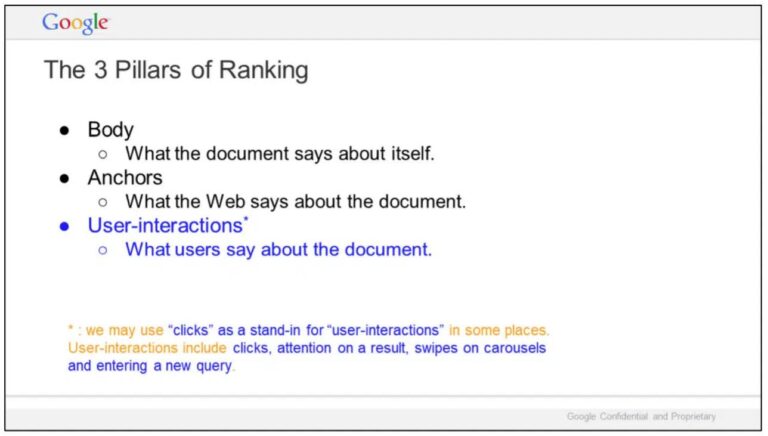
In the ever-evolving digital landscape, maximizing the success of your email marketing campaigns requires more than creative design and compelling copy. Deliverability, sender reputation, and technical infrastructure play pivotal roles in ensuring your messages actually reach subscribers’ inboxes. One of the most impactful—and often overlooked—strategies to boost email marketing performance is leveraging a dedicated IP address. Whether you’re a scaling eCommerce brand, a B2B enterprise, or an agency managing multiple clients, understanding how dedicated IPs work can transform your email marketing outcomes.
What is a Dedicated IP in Email Marketing?
A dedicated IP is a unique Internet Protocol address assigned exclusively to your account for sending emails, rather than sharing it with other users (as is common with shared IP pools). In the context of email marketing, this means all your outgoing messages are routed through an IP address that is not affected by the sending practices of others. This separation allows businesses to fully control and build their sender reputation—an essential factor in whether emails land in the inbox or the spam folder.
Why Dedicated IPs Matter for Email Campaigns
Enhanced Deliverability
Email deliverability refers to the rate at which your campaigns reach recipient inboxes. Internet Service Providers (ISPs) and mailbox providers continuously monitor IP addresses for spammy behavior or irregular sending patterns. With a dedicated IP, your reputation is based solely on your own email practices, not those of unknown third parties. This isolation significantly reduces the risk of your emails being filtered out due to poor behavior by others—a common pitfall with shared IPs.
Improved Sender Reputation
Sender reputation is a score ISPs assign based on metrics like bounce rates, spam complaints, and sending consistency. A high sender reputation increases inbox placement, while a low score can lead to blacklisting. By using a dedicated IP, organizations can cultivate a positive reputation over time, taking advantage of best practices such as list hygiene, authentication (SPF, DKIM, DMARC), and consistent engagement.
Greater Control and Troubleshooting
With a dedicated IP, email marketers can more easily identify and resolve deliverability issues. If inbox placement drops, you can audit your own sending practices without the uncertainty of external influences. Additionally, dedicated IPs simplify whitelisting processes with corporate domains and large ISPs, further improving deliverability for high-volume campaigns.
Customization and Scalability
As your business grows, so do your email marketing needs. Dedicated IPs enable tailored sending schedules, private domains, and the ability to manage multiple streams of email traffic (e.g., transactional vs. promotional) for optimal performance. Maintaining separate reputations for different types of email can be especially beneficial for enterprises and agencies.
Who Should Use a Dedicated IP for Email Marketing?
Not every business needs a dedicated IP. This solution is best suited for organizations sending high volumes of email—typically thousands per day or over 100,000 per month. If your email marketing campaigns are central to customer acquisition, retention, or transactional communications, investing in a dedicated IP can yield substantial returns in inbox placement and engagement rates.
Key Indicators You Need a Dedicated IP:
- You send regular, large-scale email campaigns (e.g., newsletters, promotions).
- Email communication is mission-critical for your business.
- You require granular control over your sender reputation and deliverability.
- You wish to segregate different types of email traffic for compliance or branding purposes.
The Process: Setting Up and Warming Up a Dedicated IP
Transitioning to a dedicated IP involves more than simply assigning a new address. To avoid sudden spikes that could be flagged as suspicious by ISPs, a warm-up process is essential. This gradual increase in sending volume helps establish a trustworthy sender reputation. Most reputable email marketing platforms and service providers, such as Mailchimp, Mailjet, and HubSpot, offer guided IP warm-up plans and ongoing support.
Key steps include:
- Domain Authentication: Implement SPF, DKIM, and DMARC records for legitimacy.
- Gradual Volume Increase: Start with smaller sends and ramp up over several weeks.
- Monitor Metrics: Track delivery, bounce, and spam complaint rates closely.
- List Hygiene: Maintain clean subscriber lists and remove inactive addresses.
- Consistent Sending: Avoid long gaps between campaigns to maintain a positive reputation.
The Link Between Sender Reputation and Subscriber Engagement
Sender reputation is not only influenced by technical factors but also by how subscribers interact with your emails. Major mailbox providers like Gmail and Outlook consider open rates, click rates, and complaint rates when evaluating your IP’s trustworthiness. A dedicated IP allows you to cultivate a reputation based solely on your recipients’ behavior, empowering you to fine-tune your campaigns for higher engagement. Personalizing content, segmenting your lists, and tracking metrics such as opens, clicks, and unsubscribes become even more impactful with a dedicated IP, enabling positive feedback loops that further enhance deliverability.
Technical Essentials: Warm-Up Schedules and Monitoring Tools
Warming up a new dedicated IP is a structured process that requires patience and precision. Sending too many emails too quickly from a new IP address can trigger spam filters or blacklisting. The warm-up schedule typically starts with a small volume and gradually increases over several weeks, allowing ISPs to observe consistent and legitimate sending behavior. Advanced email marketing platforms and hosting providers like Dataplugs offer monitoring tools that track bounce rates, spam complaints, and deliverability metrics in real time. These tools help you adjust your sending volume and practices proactively, ensuring your reputation grows steadily and securely.
Email Authentication and Security: Building Trust with ISPs
Implementing robust email authentication protocols is essential when using a dedicated IP. Standards such as SPF (Sender Policy Framework), DKIM (DomainKeys Identified Mail), and DMARC (Domain-based Message Authentication, Reporting, and Conformance) authenticate your messages and protect against spoofing and phishing. These protocols signal to ISPs that your emails are legitimate and authorized, further boosting your deliverability and sender reputation. Additionally, advanced security measures—like DDoS protection and anti-malware services—offered by providers such as Dataplugs, help safeguard your email infrastructure from attacks and ensure consistent, secure delivery.
Dedicated IPs and Regulatory Compliance: Meeting Industry Standards
As data privacy regulations like GDPR, HIPAA, and PCI DSS become more stringent, email marketers must ensure compliance not only in content but also in delivery infrastructure. Dedicated IPs facilitate compliance by providing clear, auditable sending practices and supporting high standards of data integrity and privacy. By isolating your email traffic from other senders, you reduce the risk of accidental data breaches or policy violations associated with shared IP environments. This is particularly vital for industries such as finance, healthcare, and eCommerce, where regulatory scrutiny is high and consequences for non-compliance can be severe.
The Business Benefits: Boosting Campaign Results
Deploying a dedicated IP for email marketing unlocks tangible benefits:
- Higher Inbox Placement: Your emails have a better chance of avoiding spam filters.
- Fewer Bounce Backs: Reduced risk of being blacklisted due to others’ poor practices.
- Improved Reporting: Accurate data on your campaigns for smarter optimization.
- Regulatory Compliance: Easier to meet data privacy and security standards, crucial for industries like finance, healthcare, and eCommerce.
Dedicated IPs and Related Technologies
Email deliverability isn’t just about the IP address. Related entities—such as SMTP relay, email authentication protocols (SPF, DKIM, DMARC), sender score, and email verification—all play a role. Leading providers integrate these technologies for a holistic approach to email marketing success.
Choosing the Right Hosting Partner
Selecting a hosting provider with a robust infrastructure is critical for dedicated IP success. Dataplugs, for instance, delivers enterprise-grade dedicated server hosting solutions in Hong Kong and Los Angeles, offering customizable configurations, high availability, and 24/7 technical support. With Dataplugs, businesses benefit from:
- Premium hardware and network redundancy for maximum uptime.
- DDoS protection and web application firewalls to safeguard email services.
- Flexible scaling to match evolving email marketing needs.
- Expert support for seamless dedicated IP setup, warm-up, and ongoing management.
Whether you’re running high-velocity marketing campaigns or mission-critical transactional emails, partnering with a trusted provider like Dataplugs ensures your infrastructure is as reliable as your marketing strategy.
Summary
In summary, dedicated IPs are a cornerstone for businesses aiming to maximize the effectiveness of their email marketing campaigns. By isolating your sender reputation, enhancing deliverability, and providing greater control, dedicated IPs empower marketers to achieve superior results. When combined with best practices and robust hosting solutions, such as those offered by Dataplugs, your email marketing can achieve higher inbox placement, improved engagement, and measurable ROI.
Ready to elevate your email marketing success? Explore dedicated IP hosting and enterprise email solutions with Dataplugs today, or reach out to us via live chat or email at sales@dataplugs.com for expert advice on optimizing your site’s performance worldwide.





